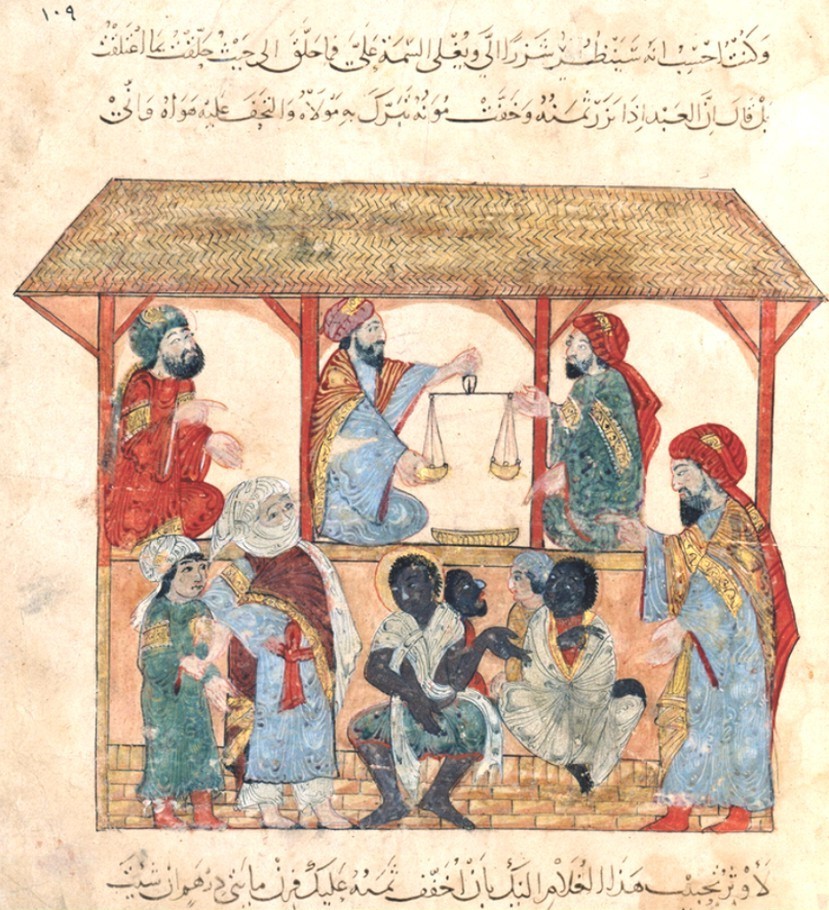|
Islam And Slavery
{{disambig ...
Islam and slavery may refer to: * Islamic views on slavery in theology / jurisprudence * Islamic views on concubinage in theology / jurisprudence * History of slavery in the Muslim world * History of concubinage in the Muslim world * Slavery in 21st-century jihadism * Ma malakat aymanukum Islamic views on slavery represent a complex and multifaceted body of Islamic thought,Brockopp, Jonathan E., “Slaves and Slavery”, in: Encyclopaedia of the Qurʾān, General Editor: Jane Dammen McAuliffe, Georgetown University, Washington D ... [...More Info...] [...Related Items...] OR: [Wikipedia] [Google] [Baidu] |
Islamic Views On Slavery
Islamic views on slavery represent a complex and multifaceted body of Islamic thought,Brockopp, Jonathan E., “Slaves and Slavery”, in: Encyclopaedia of the Qurʾān, General Editor: Jane Dammen McAuliffe, Georgetown University, Washington DC. with various Islamic groups or thinkers espousing views on the matter which have been radically different throughout history.Lewis 1994 Slavery was a mainstay of life in pre-Islamic Arabia and surrounding lands. The Quran and the ''hadith'' (sayings of Muhammad) address slavery extensively, assuming its existence as part of society but viewing it as an exceptional condition and restricting its scope.Brunschvig. 'Abd; ''Encyclopedia of Islam'' Early Islamic dogma forbade enslavement of free members of Islamic society, including non-Muslims (''dhimmis''), and set out to regulate and improve the conditions of human bondage. Islamic law regarded as legal slaves only those non-Muslims who were imprisoned or bought beyond the borders of Islami ... [...More Info...] [...Related Items...] OR: [Wikipedia] [Google] [Baidu] |
Islamic Views On Concubinage
In classical Islamic law, a concubine was a slave-woman with whom her master engaged in sexual relations. Concubinage was widely accepted by Muslim scholars in pre-modern times. Most modern Muslims, both scholars and laypersons, believe that Islam no longer accepts concubinage and that sexual relations are religiously permissible only within marriage. Concubinage was a custom practiced in both pre-Islamic Arabia and the wider Near East and Mediterranean. The Qur'an allowed this custom by requiring that a man not have sexual relations with anyone except for his wife or concubine. Muhammad had a concubine Maria the Copt who had been given to him as a gift by al-Muqawqis with whom he had a son. Some sources say he later freed and married her, while others dispute this. Classical Islamic jurists did not place any limits on how many concubines a man could have. Prostitution of concubines was prohibited. A concubine who gave birth to a child was given the special status of an ''umm al-wa ... [...More Info...] [...Related Items...] OR: [Wikipedia] [Google] [Baidu] |
History Of Slavery In The Muslim World
The history of slavery in the Muslim world began with institutions inherited from pre-Islamic Arabia;Lewis 1994Ch.1 and the practice of keeping slaves subsequently developed in radically different ways, depending on social-political factors such as the Arab slave trade. Any non-Muslim could be enslaved. Throughout Islamic history, slaves served in various social and economic roles, from powerful emirs to harshly treated manual laborers. Early on in Muslim history slaves provided plantation labor similar to that in the early-modern Americas, but this practice was abandoned after harsh treatment led to destructive slave revolts, the most notable being the Zanj Rebellion of 869–883. Slaves were widely employed in irrigation, mining, and animal husbandry, but most commonly as soldiers, guards, domestic workers, concubines (sex slaves). Many rulers relied on military slaves (often in huge standing armies) and on slaves in administration – to such a degree that the slaves could ... [...More Info...] [...Related Items...] OR: [Wikipedia] [Google] [Baidu] |
History Of Concubinage In The Muslim World
The history of concubinage in the Muslim world encompassed the practice of a men living with a woman without marriage, where the woman was a slave, though sometimes free. If the concubine gave birth to a child, she attained a higher status known as Umm walad. The sexual exploitation of slaves by their owners was a common practice in the Ancient Near East and Mediterranean societies, and had persisted among the three Abrahamic religions, with distinct legal differences, since antiquity. Islamic law has traditionalist and modern interpretations: the former allowed men to have sexual relations with their female slaves, while most modern Muslims do not consider slave concubinage to be acceptable in the modern world. Concubinage was widely practiced by the Umayyads, Abbasids, Mamluks, Ottomans, Timurids and Mughals. The practice declined with the abolition of slavery. Characteristics Classifications of concubinage often define practices in Islamic societies as a distinct va ... [...More Info...] [...Related Items...] OR: [Wikipedia] [Google] [Baidu] |
Slavery In 21st-century Jihadism
Quasi-state-level jihadist groups, including Boko Haram and the Islamic State of Iraq and the Levant, have captured and enslaved women and children, often for sexual slavery. In 2014 in particular, both groups organised mass kidnappings of large numbers of girls and younger women. Enslavement By Boko Haram The first report of slave-taking by Boko Haram was on 13 May 2013 when a video was released of Boko Haram leader Abubakar Shekau saying his group had taken women and children - including teenage girls - hostage in response to the arrest of its members' wives and children. According to Islamism expert Jonathan N.C. Hill, Boko Haram began kidnapping large numbers of girls and young women for sexual use in 2014. The attacks echoed kidnappings of girls and young women for sexual use by Algerian Islamists in the 1990s and early 2000s, and may reflect influence by al-Qaeda in the Islamic Maghreb.Marina Lazreg, "Consequences of Political Liberalisation and Sociocultural Mobilis ... [...More Info...] [...Related Items...] OR: [Wikipedia] [Google] [Baidu] |



